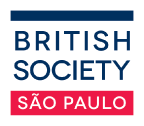Human Foods That Are Dangerous For Dogs And Cats
/A number of human foods are dangerous to pets. Many of these foods may seem tasty to our pets but can prove deadly if eaten. It can be very tempting to offer pets food from the table, but pets should not be given human food unless recommended by your veterinarian.
Xylitol – An artificial sweetener found in products such as candy, mints, toothpaste, mouthwash and gum. It is harmful to dogs because it causes a sudden release of insulin in the body that leads to hypoglycemia (low blood sugar). Xylitol can also cause liver damage in dogs. Within 30 minutes after eating, a dog may vomit, be lethargic (tired) and/or be uncoordinated. However, some signs of toxicity can also be delayed for hours or even for a few days.
Chocolate – Chocolate contains theobromine, a chemical that in large quantities can be toxic. Even a few ounces of chocolate can be enough to cause illness in a small dog. It can cause vomiting, diarrhea, rapid or irregular heart rate, restlessness, muscle tremors, and seizures.
Grapes And Raisins – These can cause acute and sudden kidney failure in cats and dogs. It is unknown what the toxic agent is in these fruits, however clinical signs can occur within 24 hours of eating and include vomiting, diarrhea and lethargy. Other signs of illness relate to the eventual shutdown of kidney functioning.
Avocados – The avocado tree leaves, pits, fruit and plant bark are likely all toxic. Clinical signs in dogs and cats include vomiting and diarrhea. (Note: some dogs love avocados and seem to be immune! Mine vomits the pieces of avocado skin but is otherwise quite happy when he finds an abacate under the tree….)
Garlic And Onions – contain chemicals that damage red blood cells in cats and dogs. Affected red blood cells can rupture or lose their ability to carry oxygen effectively. Cooking these foods does not reduce their potential toxicity. Fresh, cooked and/or powdered garlic and/or onions are commonly found in baby food, which is sometimes given to animals when they are sick, so be sure to read food labels carefully.
Macadamia Nuts - These are common in candies and chocolates. The mechanism of macadamia nut toxicity is not well understood, but clinical signs in dogs include depression, weakness, vomiting, tremors, joint pain and pale gums. In some cases, signs can resolve without treatment in 24 to 48 hours, but patient monitoring is strongly recommended.
Many cases of human food toxicity in pets are accidental. A pet may find and chew on a package of gum or candy, or steal food from a countertop or table. This may be particularly difficult during the holiday season, when more candy, chocolate, fruit baskets and other food items are around. During these times, increased vigilance can prevent pets from finding and eating foods that are dangerous for them.
In general, human food items should not be given to pets unless recommended by your veterinarian. Children should also be taught to NEVER give candy, gum, or other food items to pets. If you suspect that your pet has eaten a potentially hazardous item, contact your veterinarian immediately.
(from http://www.vetstreet.com/care/human foods)
And, on a happier note: The Associação thanks everyone most warmly for their continued help over this year,and hopes to see you all at the Pet Show, from 12 o`clock at St. Paul´s Cathedral on August 17.
Lula May Reed


